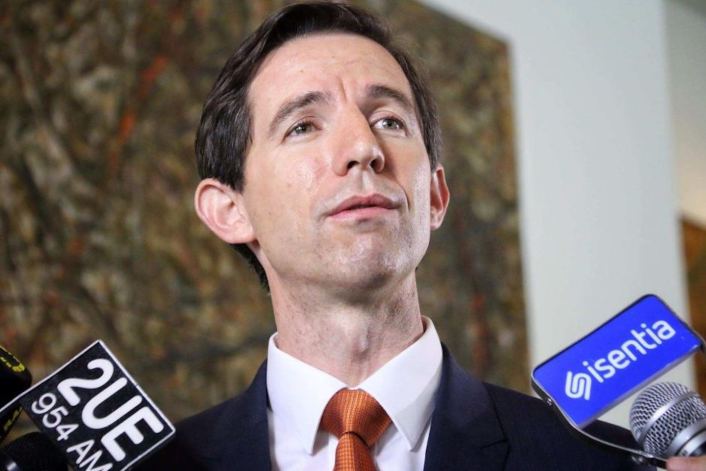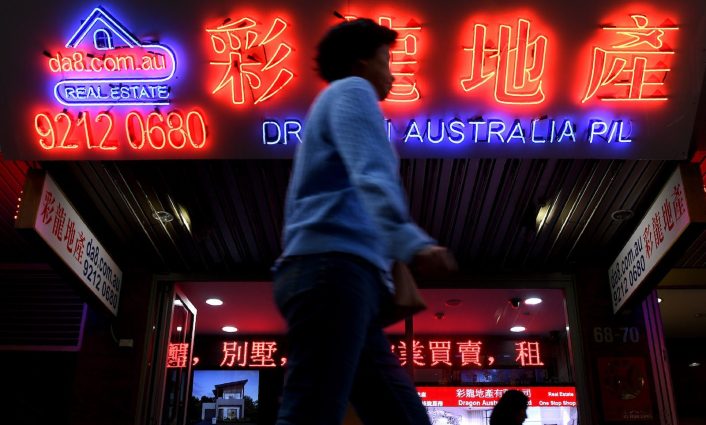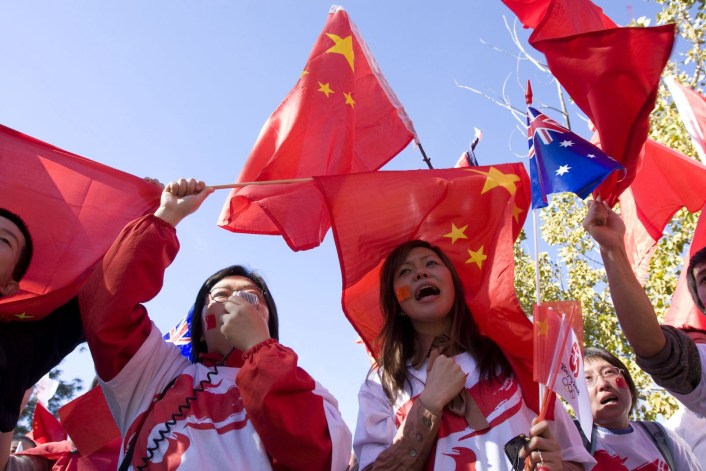SYDNEY – Australia’s call for an investigation into China’s role as the origin of the Covid-19 pandemic is quickly morphing into a trade war, one that could have unhealthy impacts on both sides.
Australian Trade Minister Simon Birmingham is seeking talks with counterpart Zhong Shan after Beijing moved earlier this week to block imports of Australian barley and beef.
“You’ve got hundreds of thousands of people who’ve died, millions who’ve lost their jobs and billions who’ve had their lives disrupted, the least the world can expect is that there be an investigation and Australia’s far from a lone voice in advancing that,” Birmingham said today (May 13).
At the same time, Australia will continue to put the squeeze on China over its handling of the Covid-19 virus despite the risk of further trade retaliation from Beijing, confident perhaps that it now has support from key Western allies including the United States.
“I was very clear that in no way would Australia change our public health policies or our national security policies or any of our policy positions under threat of economic coercion and that remains very much the case.”

Australia Trade Minister Simon Birmingham puts on a brave face amid China trade threats. Image: Twitter
China has cited alleged technical breaches of trade rules for its decision on Tuesday to suspend beef shipments from four meat abattoirs, including one with Chinese ownership, and its earlier threat to slap higher duties on Australian barley exports. Barley farmers could face tariffs of up to 80% if China makes good on its threat.
Australia’s barley shipments to China, used mostly for making beer, are worth about US$1 billion a year. The beef ban will affect about one-third of the country’s exports to China, with an annual value of US$800 million.
An anti-dumping dispute over Australian barley exports has been rumbling for 18 months and was set to be resolved this month.
Beijing has used apparent technical trade violations in the past as a political and diplomatic lever, and had issued veiled threats of reprisals in late April over Canberra’s call for a virus probe.
Australia’s wine and dairy industries believe they could be next in line for retaliation, followed by the education and tourism sectors. China is Australia’s top trade partner, buying US$88 billion worth of goods in 2018.
With the Australian economy already losing US$2.6 billion a week from Covid-19 related shutdowns, the timing could not be worse for a China trade showdown.
Bilateral friction over issues like security and infiltration of university campuses have already taken a hefty economic toll, with Chinese direct investment in Australia plummeting by 44% in 2018-19, though this was also partly attributed to a general tightening of trade and capital controls by Beijing.

A woman walks by Chinese language advertisements for Australian property in Sydney’s Chinatown on June 21, 2017. Photo: AFP/William West
Chinese investors won’t be coming back in a hurry, as Australia has changed its screening rules for foreign projects to stop Chinese buyers from snapping up strategic assets at low prices. Projects of any size are now officially reviewed by authorities.
Australia has taken a more diplomatic tone than the US Donald Trump administration in efforts to make China accountable for unleashing the coronavirus and its devastating public health and economic impacts.
But there are signs that the two long-time allies are cooperating in what some analysts see as a good cop, bad cop routine, though from Beijing’s perspective both are bad cops.
In April, Australia blocked plans by Baogang Group Investments to buy a US$13 million stake in a mine owned by Northern Minerals because it produces rare earths, minerals vital for a range of electronic goods, stating only that the purchase was “contrary to the national interest.”
Washington asked Australia last year to safeguard sources of minerals like dysprosium and terbium, used in everything from cell phones to nuclear plants, because it was afraid of a possible Chinese blockade.
China has most of the global supply of rare earths and produces 80% of exports. Australia, the US and India are the other major sources.
Hardline conservatives
Convinced that divisions between China and Western countries will continue to widen, hardline conservatives in Australia’s governing Liberal-Nationals coalition are pushing Canberra to up the ante even further.
On Monday, senators from both sides of the US Congress sent a letter to the Australian Ambassador in Washington, Arthur Sinodinos, pledging to back Australia’s demands for an independent inquiry into the coronavirus.
“Given the tremendous toll Covid-19 has taken on the world, it is only natural that Australia – like all nations concerned with upholding best practices for global public health – would want an objective, scientific, evidence-based, and rigorous investigation into the origins of the virus.
“No matter the external pressure or coercion, we will always have Australia’s back, just as Australia has always had ours,” the letter said.
Trump has also backed Australia’s stance and continues to maintain that the virus originated from a laboratory in Wuhan, the Chinese city where it was first detected in January. Scientists have said that gene sequencing proves Covid-19 is of natural origin and came from an animal like a bat.
The European Union’s 27 members will also present a draft resolution to the annual meeting of the World Health Organization on May 18 that is expected to support Australia’s calls for a Covid-19 inquiry. It is highly likely that China, an influential member, will try to block the resolution.
EU foreign affairs director Josep Borrell said the bloc was not taking sides in the stand-off and wanted to see an investigation that would step aside “from the battlefield between China and the United States, who blame each other for the events in a bid that has only exacerbated their rivalry.”
This story appeared first on Asia Times website
























